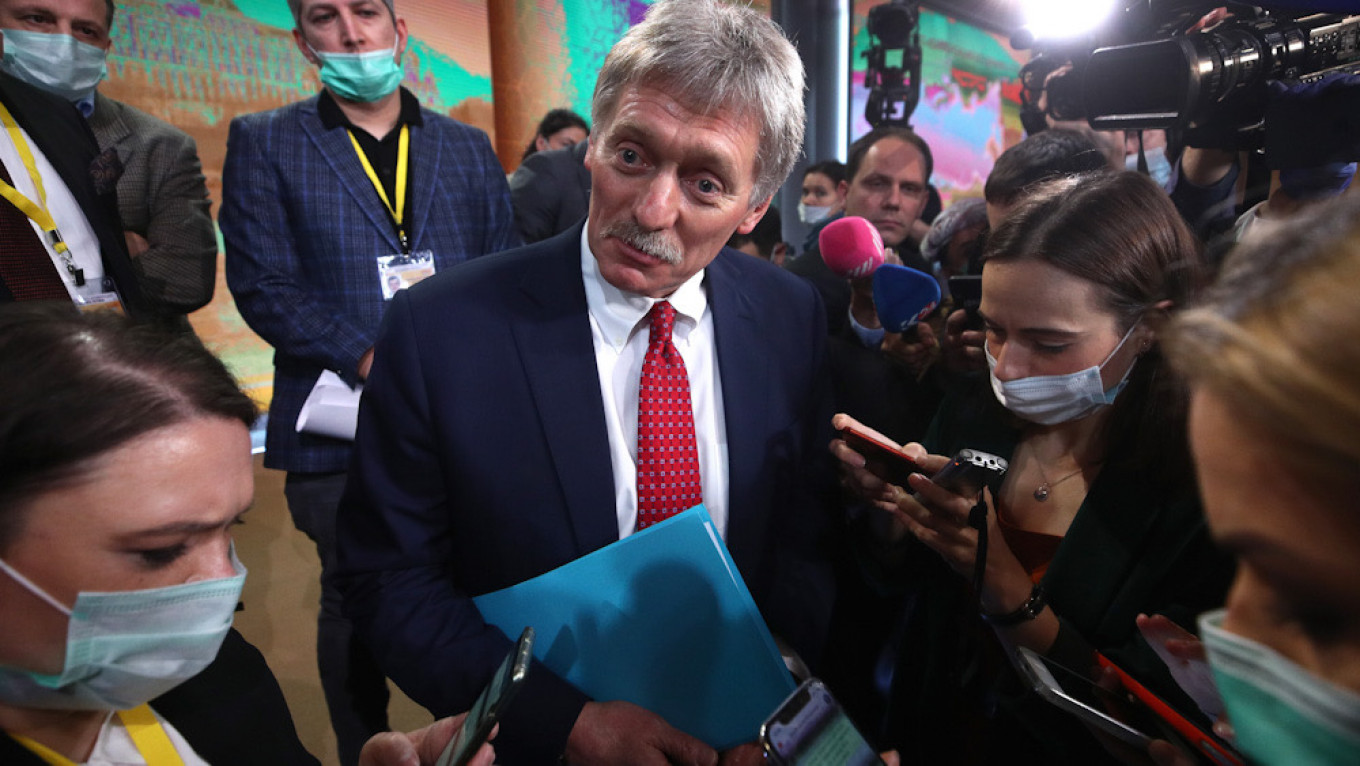
Calls for targeted U.S. sanctions against several dozen Russian business and political elites by jailed opposition leader Alexei Navalny’s Anti-Corruption Foundation (FBK) confirms its status as a foreign agent, the Kremlin said Monday.
On Jan. 30, FBK executive director Vladimir Ashurkov shared a letter to U.S. President Joe Biden listing individuals — many of whom have close ties to President Vladimir Putin — who the group said should be sanctioned in order to combat high-level corruption and human rights abuses. “Anything less will fail to make the regime change its behavior,” the letter says.
“As for this fund and all these letters and appeals, the fund has de jure and de facto demonstrated its status as a foreign agent,” the state-run TASS news agency quoted Kremlin spokesman Dmitry Peskov as saying to reporters.
“We do not accept these sanctions. We consider them absolutely unacceptable, we believe that this is a completely wrong method of conducting interstate relations. There is no prospect for this method,” he added.
The list posted by Ashurkov divides the named individuals into three categories: businessmen, human rights violators and people “personally involved in the persecution of Alexei Navalny” and the foundation he created. Among them are Chelsea Football Club owner Roman Abramovich, billionaire Alisher Usmanov and state-owned VTB Bank President Andrei Kostin.
The White House has not yet issued a formal response to the letter calling for personalized sanctions. Biden has previously called for Navalny’s immediate release and hinted at the possibility of new sanctions over a massive cyber breach of U.S. government agencies that has been linked to Russia.
Those who call for the imposition of sanctions should be held criminally responsible, State Duma Speaker Vyacheslav Volodin said.
Volodin called for an amendment to a corresponding bill passed in 2018, which provides for criminal liability for the enforcement of sanctions on the territory of Russia.
According to Volodin, similar appeals on the introduction of sanctions against Russians should be regarded as “an appeal for foreign aid in order to destroy our economy.”
The Kremlin accused Navalny of working on behalf of western intelligence services, particularly the CIA, after the anti-corruption campaigner blamed his near-fatal poisoning with the Novichok nerve agent on President Vladimir Putin.
Russia added the FBK to its registry of foreign agents in 2019, a move the group says is aimed at hindering its investigations into corruption.
